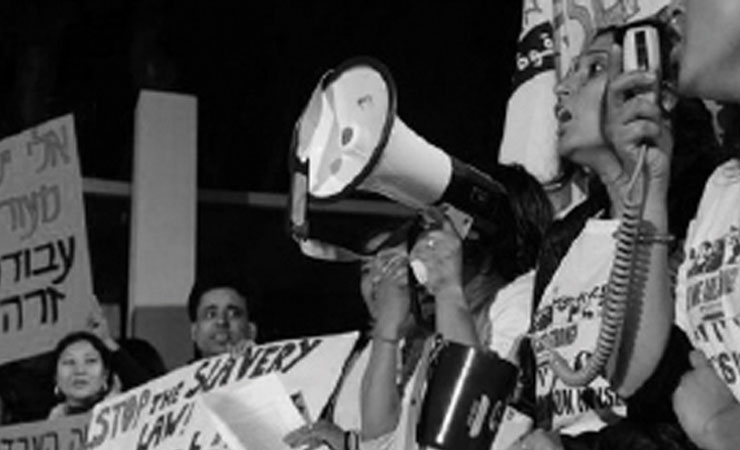By Taghrid Shbeta
Yahya El Mughrabi, who lives near Jericho, worked for an Israeli spice factory. His hand was seriously injured at work. The marathon he ran for recognition of the injury as a workplace accident took him through bureaucratic hell, resulted in losing his job because he sought recognition of his injury as a workplace accident, and caused hismedical condition to deteriorate due to prolonged failure to receive treatment. This was described in the article Workplace Accident: The Race for Recognition which was published in English on the Kav LaOved website on May 7, 2014.
Yahiya’s story is just one of many told by Palestinians employed by Israeli companies in the territories who were injured at work and were in need of medical attention. Workers with permits have the right to medical coverage comparable to that of Israeli citizens through the health services organizations and the National Insurance Institute (NII). The NII must classify the injury as a work accident and then the injured worker is referred to the Clalit Mekor Baruch Clinic in Jerusalem which has an agreement with the NII to provide treatment for all workers with work injuries from the Jericho area and settlements in the south of the country.
Despite their right to medical insurance equivalent to that of Israeli citizens, there are still obstacles that prevent these workers from receiving proper treatment. For example, when Yahiya entered the doctor’s office, he was unable to communicate with the doctor who did not speak Arabic. The doctor sent him to find an interpreter. Having no choice, Yahiya went to look for help in the offices and among the many people in the halls and stairwells. After searching everywhere and asking nearly every person in the building who speaks both Hebrew and Arabic, he finally found someone who was able and willing to help him.
The doctor then referred Yahiya to the orthopedic physician in the same clinic. The appointment was set for a few weeks away. This time Yahiya brought a friend who speaks both languages in order to avoid the task of searching the halls for someone to help him, or, if he failed to find help, having to postpone his appointment.
Being entitled to health insurance, one might wonder if the health services provider should insure proper treatment of those with workplace injuries. Is it legitimate to obligate the patient to desperately turn to passers-by, who are most certainly not trained to serve as professional interpreters, for their help? Is it acceptable that the consequence of failure to find help is the delay of treatment?
The Arabic-speaking community is not a negligible minority. The Arabic language is not exotic. It is an official language used by over one-fifth of Israel’s citizens and many more Palestinians working under Israel’s jurisdiction. This is especially true in a city like Jerusalem. When the National Insurance and a health service provider sign an agreement designating a specific clinic to handle all Palestinians employed by Israeli companies who need medical treatment for workplace injuries, one would think that a professional interpreter or an Arabic speaking doctor would be present at that clinic. It is reasonable to expect health authorities who care for injured workers to provide a practical way for workers to benefit from the insurance that they deserve.
The author is Coordinator of Fieldwork for Palestinian Workers at Kav LaOved.
Originally published in Hebrew on the Kav LaOved website May 16, 2014
Translation: Sharon Kerpel


